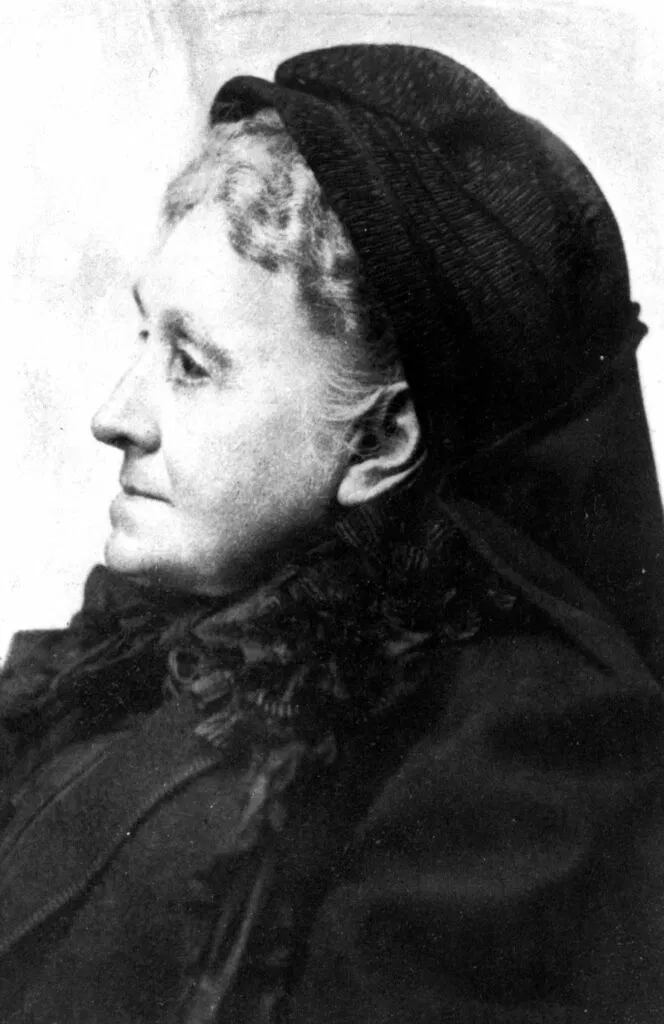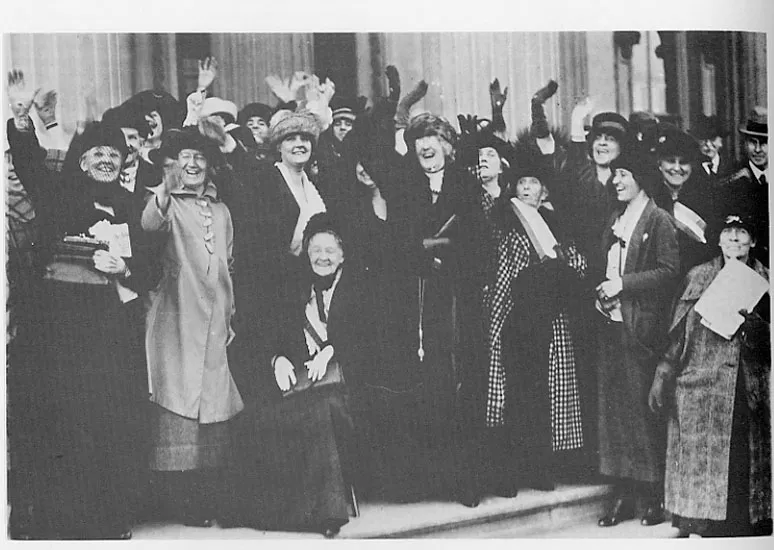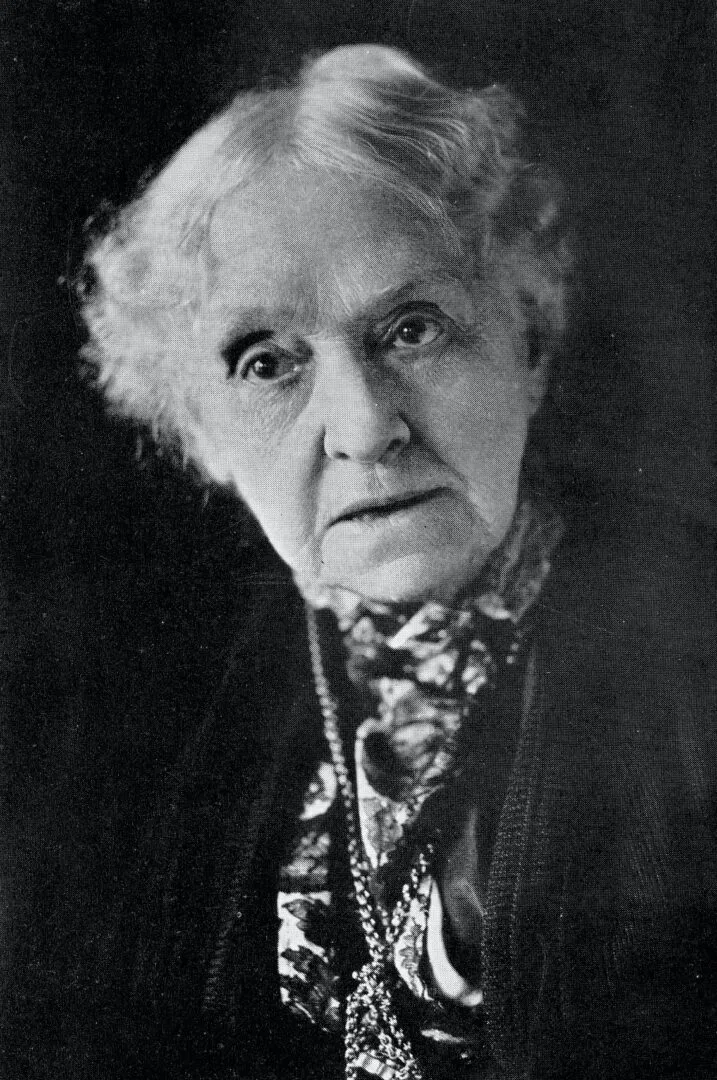The Deepfake of 1898—Media Manipulation Designed to Fuel White Rage
- Tamice Spencer-Helms

- Feb 7
- 4 min read
Updated: Feb 11
Rebecca Felton: The Paula White of Antiquity and the Propaganda of White Womanhood
If Paula White is the spiritual hype-woman for white Christian nationalism, then Rebecca Felton was her prototype—the original white supremacist evangelist, rallying the faithful not with prayers for Donald Trump but with calls for thousands of lynchings a week.
Both women mastered the art of racialized fear-mongering, weaponizing the idea of white womanhood as something that needed violent, divine, and state-sanctioned protection from the Black menace. And both knew that white fear is currency in American politics.
Felton didn’t just uphold white supremacy; she helped script it, using religion, media, and public platforms to spread the lie that white women were under siege by Black men. In doing so, she helped justify the racial terrorism that led to events like the Wilmington Coup of 1898—America’s only successful coup d’état.
The Fear-Mongering- A Case Study in Manufactured Panic
In August 1898, Rebecca Felton, the wife of a Georgia congressman, stood before the Georgia Agricultural Society and delivered a speech so vile it could’ve been ripped straight from a Klan rally:
“If it needs lynching to protect women’s dearest possession from ravening human beasts, then I say lynch a thousand times a week if necessary.”
There was no “rape epidemic” terrorizing white women. That was the point. Felton, like every good propagandist, knew that fear doesn’t have to be real to be effective—it just has to be believable enough to justify violence.
The Power of the White Womanhood Myth
Felton’s speech wasn’t an isolated event. It was part of a long tradition of white women positioning themselves as fragile, virtuous victims, needing protection from the “savagery” of Black men.
This wasn’t just about racism—it was about power.
✔️ White women were not passive in white supremacy; they were active participants.
✔️ The false narrative of Black men as sexual predators justified lynching, Jim Crow laws, and racial terror.
✔️ By playing the victim, white women like Felton secured their own power while inciting deadly violence.
Felton’s words weren’t just words. They became policy.
Alexander Manley’s Rebuttal: A Truth Too Dangerous to Be Spoken
The propaganda machine might have kept rolling unchecked, but then Alexander Manley, a Black journalist and editor of Wilmington’s Daily Record, refused to let Felton’s lie go unchallenged.
In a blistering editorial, he turned the mirror back on white supremacy:
✔️ He exposed the hypocrisy of white men lynching Black men for alleged rape while raping Black women with impunity.
✔️ He stated plainly that white women were not universally victims—many sought out relationships with Black men.
✔️ He called out the double standard that allowed white men to violate Black women without consequence while punishing Black men for even the suggestion of intimacy with white women.
His words were the ultimate blasphemy in the church of white supremacy.
“Tell your men that it is no worse for a Black man to be intimate with a white woman than for a white man to be intimate with a colored woman. Don’t think ever that your women will remain pure while you are debauching ours.”
For speaking the truth, Manley became the perfect scapegoat.
From Propaganda to Political Coup
White supremacists in Wilmington immediately seized on Manley’s editorial as a tool for their long-planned campaign to overthrow Black political power.
In the lead-up to the November 1898 election, white Democratic leaders used the editorial as Exhibit A, convincing white voters that Black political leadership meant the downfall of white civilization. The News & Observer ran propaganda cartoons, depicting Black men as monstrous figures hovering over the state.
This was the deepfake of 1898—media manipulation designed to fuel white rage.
By November 10, 1898, the manufactured hysteria boiled over into action. Armed white mobs stormed Wilmington, burned down Manley’s newspaper, and massacred Black residents in the streets. They overthrew the legally elected government, installing white supremacist rule in its place.
And just like that, white womanhood had done its job—providing the moral justification for the only successful coup in U.S. history.
Why This Still Matters

The Paula White playbook is just an updated version of Rebecca Felton’s.
White women still weaponize their perceived victimhood to justify oppression.
The media is still used to manufacture fear, incite racial violence, and justify authoritarianism.
Lies about Black criminality still shape policy, policing, and public perception.
Felton may be gone, but her legacy lives on in stand-your-ground laws, “critical race theory” bans, and modern voter suppression efforts. White supremacy still recruits its “faithful” through fear. It still manipulates media to stir up panic. And it still uses white women as the face of moral righteousness while committing the most immoral acts imaginable.
Telling the Truth is Still Revolutionary
Just like Alexander Manley, those who name the truth today are met with backlash. But if history teaches us anything, it’s that the truth disrupts the script. It always has. Rebecca Felton wanted Black men lynched by the thousands to “protect” white women. But it wasn’t protection—it was power. And the only way to break that power is to tell the truth loud enough that they can’t erase it.





